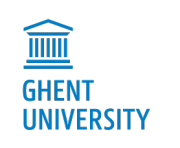General information
In this summer course you will learn about the latest findings regarding the biology and ecology of bacterial and fungal biofilms. Biofilms are the natural growth form of many microorganisms but in recent years, biofilm formation has become a major problem in hospitals. There is an increased use of medical implants, which all form ideal substrates for bacteria and fungi to adhere to and to further develop a biofilm. Cells inside such a biofilm are generally more resistant to antimicrobial drugs so that it is difficult to eradicate a biofilm completely, resulting in recurrent infections. In addition, a biofilm is surrounded by a matrix consisting of polysaccharides, proteins and inorganic compounds, which further protects the cells inside the biofilm from the host immune system and which also seems to capture antimicrobial drugs in such a way that higher concentrations are required for effective treatment.
Despite the focus of biofilm research on pure culture bacteria, it is now widely recognized that most bacteria found in natural, clinical, and industrial settings persist in communities of microorganisms attached to surfaces or associated with interfaces. Furthermore, these microbial communities are often composed of multiple species that interact with each other and their environment. Apart from the biofilms that cause problems in humans, we will also highlight the recent findings on how biofilms can be used for ecological purposes.
Different experts in the field, including professors from the US, Portugal and Germany, will give an overview of our current understanding about the molecular and cellular biology of biofilm development, drug resistance, multi-species interactions, in vitro and in vivo biofilm model systems and new avenues that are being developed in order to prevent biofilms. The summer school starts on Monday at lunchtime and ends on Thursday at lunchtime. We foresee a few hours for participating PhD students that wish to present their own work. Apart from the lectures we will also organize a half-day (Wednesday afternoon) of a practical session where participants will be able to perform a number of experiments in the laboratory, including some demonstrations of in vivoexperiments. The full program of the summer school is available here. The school will be organized at the conference center ‘La Foresta’ in Vaalbeek, just a few kilometers away from Leuven. Full board will be provided for students staying at La Foresta.
Content
The highlighted icons, represent the fields of education (in compliance with ISCED Classification) engaged during this course/programme.
Venue
Application
Click here to apply: https://wet.kuleuven.be/apps/summerschool/biofilm.php
Cost:
<p><strong>Fee for Bachelor or Master students is € 200</strong></p> <p><strong>Fee for PhD students or Postdocs is € 270</strong></p> <p>The fee includes full board starting with lunch on Monday the 15th of September and ending with lunch on Thursday the 18th of September. Accomodation in the monastery is in double or triple rooms with communal toilet and showers in the corridor.</p>
Prerequisites:
This summer course is intended for third year bachelor students, master students and PhD students with a background in biology, biochemistry and biotechnology, biomedical sciences and bioengineering sciences. Students can obtain credits for this course.
Application Procedure:
Registration via the online registration tool is only completed after payment of the registration fee.
Registration Deadline: 1st of August
Qualification
In this summer course you will learn about the latest findings regarding the biology and ecology of bacterial and fungal biofilms. Biofilms are the natural growth form of many microorganisms but in recent years, biofilm formation has become a major problem in hospitals. There is an increased use of medical implants, which all form ideal substrates for bacteria and fungi to adhere to and to further develop a biofilm. Cells inside such a biofilm are generally more resistant to antimicrobial drugs so that it is difficult to eradicate a biofilm completely, resulting in recurrent infections. In addition, a biofilm is surrounded by a matrix consisting of polysaccharides, proteins and inorganic compounds, which further protects the cells inside the biofilm from the host immune system and which also seems to capture antimicrobial drugs in such a way that higher concentrations are required for effective treatment.
Despite the focus of biofilm research on pure culture bacteria, it is now widely recognized that most bacteria found in natural, clinical, and industrial settings persist in communities of microorganisms attached to surfaces or associated with interfaces. Furthermore, these microbial communities are often composed of multiple species that interact with each other and their environment. Apart from the biofilms that cause problems in humans, we will also highlight the recent findings on how biofilms can be used for ecological purposes.
Different experts in the field, including professors from the US, Portugal and Germany, will give an overview of our current understanding about the molecular and cellular biology of biofilm development, drug resistance, multi-species interactions, in vitro and in vivo biofilm model systems and new avenues that are being developed in order to prevent biofilms. The summer school starts on Monday at lunchtime and ends on Thursday at lunchtime. We foresee a few hours for participating PhD students that wish to present their own work. Apart from the lectures we will also organize a half-day (Wednesday afternoon) of a practical session where participants will be able to perform a number of experiments in the laboratory, including some demonstrations of in vivoexperiments. The full program of the summer school is available here. The school will be organized at the conference center ‘La Foresta’ in Vaalbeek, just a few kilometers away from Leuven. Full board will be provided for students staying at La Foresta.
Registration via the online registration tool is only completed after payment of the registration fee.
Registration Deadline: 1st of August
This summer course is intended for third year bachelor students, master students and PhD students with a background in biology, biochemistry and biotechnology, biomedical sciences and bioengineering sciences. Students can obtain credits for this course.

 Universiteit Gent (Ghent University)
Universiteit Gent (Ghent University)

